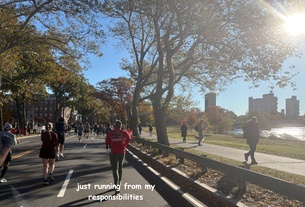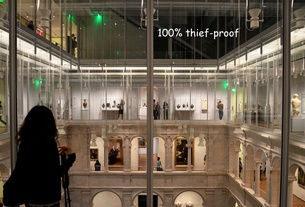{shortcode-600393ffaa2a3785761d3c28e6bcda2a91cb670b}
As Harvard College prepares to permit gender-neutral housing, it is hard to fathom that just 50 years ago the College maintained “an open door and one foot on the floor” policy, formalized in 1952, that not only prohibited the women of Radcliffe College to visit Harvard men’s rooms during certain hours, but also dictated the specific nature of visits.
A little over a decade after the creation of parietal rules—defined at the time in the Radcliffe Redbook as ”the Harvard-Radcliffe term used for those hours during which students may entertain students of the opposite sex in their rooms"—deans became frustrated at the alleged misuse of these hours.
In a letter to The Crimson in 1963, Dean of the College John U. Monro ’34 stated that parietals were intended to create “a chance for men and women students to be together, and talk together, and enjoy each other’s company, in a private, quiet place, at no extra cost.” Instead, he wrote, they were being misused for “wild parties or for sexual intercourse.”
Monro’s words disseminated across the national media, as the Associated Press and Boston newspapers covered the story. Sensational headlines and speculation soon followed, primarily highlighted by a piece in the National Enquirer, which published a tabloid that depicted the Harvard social scene as “orgiastic.”
Yet Monro’s stance, intended to uphold the mores of the time period, only ignited further rebellion.
“I still think that was a dumb stance by the dean,” said John A. Purvis ’64. “I think it really was a matter of indifference until the dean said that...We just considered it to be an invasion of privacy.”
Though students saw the ensuing campus uproar as an isolated event, decades later the 1960s would come to be known as a period of sexual revolution that launched not just Harvard, but the nation, into new moral standards.
MORES TO UPHOLD
To some College administrators, the customs of a previous generation were threatened by the behavior of students in the 1960s.
{shortcode-fa409e45ff2f670280352c84ad3f7dd082c77d29}
“People are concerned about the unusual situation in which unmarried men are entertaining young women in what amounts to their bedrooms,” Winthrop House Master David E. Owen said to The Crimson at the time. “This is not an accepted procedure in the US or anywhere in the Western world.”
Many administrators and faculty found reason for concern, if not disciplinary action, with the abuse of the parietal rules.
“It is not appropriate for a Harvard student to entertain a girl in his own room,” said Dean of Students Robert B. Watson ’37 at the time. “It’s our positive duty to deal with fornication just as we do with thievery, lying and cheating, by taking severe disciplinary measures against the offenders.”
For Harvard, the national news coverage that the story generated was a public nightmare as deans did not want the College to appear lax in comparison to prevailing standards.


